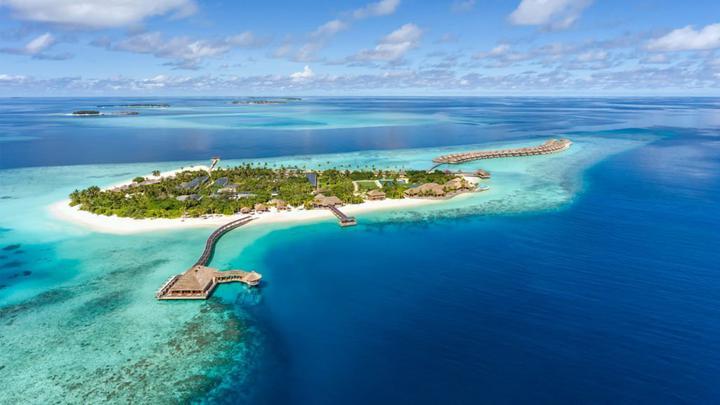Author: Prof. Engr. Zamir Ahmed Awan, Founding Chair GSRRA, Sinologist, Diplomat, Editor, Analyst, Consultant, Advisor, and Non-Resident Fellow of CCG. (E-mail: awanzamir@yahoo.com).
The Maldives is a republic lies south-west of the Indian sub-continent. It is made up of a chain of nearly 1,200 islands, most of them uninhabited. It consists of a chain of about 1,200 small coral islands and sandbanks, total Area 298 km2, and population of 515,132, is a Muslim nation, member of OIC and closely affiliated with Muslim world. It is strategically very important country in the Indian Ocean, and popular tourist destination.
Traditionally, India was dominating the country and Prime Minister Modi made his first visit to Maldives just after becoming the Prime Mistier of India. Indian influence and intervention rose to highest level under Modi tenure. Indian senior military and civil officials were deployed in Maldives and openly meddling their domestic issues. It was navigating Maldives foreign policy, economic policy, defense policy etc. Even the appointment of key positions in Maldives were linked to India consent. Promotions and posting in the country were subject to clearance from India.
India was exploiting its influence over Maldives and gaining economic and political benefits. It has been getting trade concessions, and investment benefits. It has been utilizing its strategic location in the Indian Ocean and controlling the region. The India pressures, involvements, intervention and coercion surpassed the threshold.
The youth of the country were aware of Indian over-involvement and were unpleased. Gradually, an anti-India sentiments were growing in the nation. In the recent elections held in September 2023, Progressive Party of Maldives (PPM), openly raised the slogan “India Out”. Masses voted the to PPM based on anti-India sentiments and Mr. Muizzu, a candidate for the Progressive Party of Maldives (PPM), won over 54% of the votes in the second and the final run-off for the polls.
President Muizzu made his first trip after taking the charge of his office to China. Which ends the Indian era of dominance in Maldives. India has gone into sever Isolation in the entire region, as its immediate neighbors, including Nepal, Bhutan, Bangladesh, Pakistan, China, and Myanmar, are already at odd and tense relations. India transformed SARRC into dysfunctional organization, and extending hands of friendship with the US, Australia and Japan – Quad.
The recent talks between Chinese President Xi Jinping and Maldivian President Mohamed Muizzu in Beijing mark a significant milestone in the bilateral relations between the two nations. Both leaders announced the elevation of ties to a comprehensive strategic cooperative partnership, showcasing the historical and cooperative nature of the diplomatic relationship that has been nurtured over the past 52 years.
President Xi highlighted the friendly ties established through the ancient Maritime Silk Road and the productive cooperation in the construction of the Belt and Road Initiative (BRI) as examples of equality, mutual assistance, and mutual benefit. This elevation of ties is seen as a historic opportunity for both nations to build on past achievements and forge ahead into a new era of collaboration.
The constructive dialogue between the leaders emphasizes the importance of respecting and supporting each other's national conditions. President Xi reiterated China's commitment to assisting the Maldives in exploring a development path suited to its unique circumstances, emphasizing the principles of national sovereignty, independence, territorial integrity, and national dignity.
China's readiness to exchange governance experiences and strengthen the synergy of development strategies is a positive step towards fostering a deeper understanding between the two nations. The commitment to advance high-quality Belt and Road cooperation reflects a shared vision for economic development and infrastructure improvement.
President Xi's call for strengthened cooperation in areas such as economy, trade, investment, agricultural parks, and environmental protection, as well as people-to-people exchanges, demonstrates a commitment to fostering a comprehensive and mutually beneficial relationship.
The elevation of ties between China and the Maldives is expected to have a positive regional impact. The Maldives, as a key partner in the Belt and Road projects, will play a crucial role in transforming its economic development. The China-Maldives Friendship Bridge, as a symbol of the bond between the two peoples, has already connected separate landmasses and facilitated expanded economic activities.
Maldivian President Mohamed Muizzu's commitment to promoting economic, trade, tourism, investment, and cultural cooperation with China aligns with the shared interests of both nations. His acknowledgment of China as a key partner in the social and economic development of the Maldives underscores the importance of the diplomatic ties.
The elevation of ties between China and the Maldives is a testament to the positive and cooperative spirit that should define international relations. As both nations work towards a comprehensive strategic cooperative partnership, it is essential to foster an environment of mutual understanding, trust, and respect, not only for the benefit of the Maldives and China but also for the stability and prosperity of the entire region. The shared commitment to international initiatives and multilateral cooperation will undoubtedly contribute to a more peaceful, secure, and prosperous world.
(ASIA PACIFIC DAILY)
